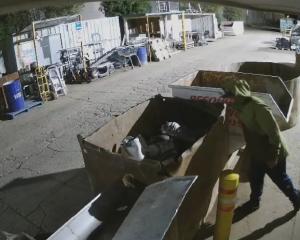
Residents have reacted to the smell and taste since the relatively harmless disinfection element was introduced two months ago, and some councillors have been fighting to remove it.
At the first regular Selwyn District Council meeting of the new term last week, councillor Grant Miller was unsuccessful in his bid to get a notice of motion adopted by fellow councillors.
The notice of motion called for the district council to pause temporary chlorination.

The report would include information about the bacterial contamination risks of each supply, and the legislative responsibility of the district council.
In the opening discussion on the notice of motion, Miller said he had become aware, via media and personal contact with Waimakariri and Christchurch councils, of an alternative approach from Taumata Arowai.
This approach enabled a pathway of working with the community rather than strict enforcement.
Miller said Selwyn has high water quality going back decades. Incidents have included an E. Coli incursion at the Darfield and Springston supplies, which was identified and remedied in good time.
The meeting was attended by water authority Taumata Arowai chief executive Bill Bayfield via zoom.

Christchurch is already chlorinating about 80 per cent of its supplies, while Waimakariri has had the ability to chlorinate in case of an emergency for some time.
"If you are looking out of the three approaches of the councils in the immediate neighbourhood, then yours is the most secure and yours is the most certain," Bayfield said.
Chlorination is deemed temporary in 18 of the district's supplies, as they have not previously had permanent chlorination introduced and chlorination will be able to cease in future if an exemption application is successful.
The district council has so far applied for exemptions on two of these supplies, and Taumata Arowai expects to give an answer for the first, Rakaia Huts, within the next three weeks.
"To turn chlorine off before those exemptions are sorted out, you have to look closely at your reasons for doing that, because if you do not have the advice of officers to make that decision, then you are making what seems to be a political decision.
"If there's another problem like Darfield, or God forbid, like Havelock North, then that will place your council in a very difficult position," Bayfield said.
In 2016, the death of four Havelock North residents was connected to contaminated water.
Deputy mayor Malcolm Lyall said he did not want chlorine in his drinking water, which he says is among the best in the country.
However, he could not leave staff and contractors at risk of being liable for unsafe water.
Lyall moved that the notice of motion lie on the table until the next meeting, seconded by councillor Nicole Reid.
Cost of pausing chlorination
If district councillors decide at their next meeting to pause temporary chlorination, it will cost ratepayers about $250,000.
Chief executive David Ward said at the meeting, decommissioning then recommissioning chlorination equipment on the temporarily chlorinated schemes would involve disposing of chlorine out of the system, allowing for flushing and ongoing calibration.
"It's not simply a task of rocking up and turning off a switch," Ward said.
Following the meeting group manager infrastructure and property, Murray Washington, told the Selwyn Times the cost would be about $250,000.












